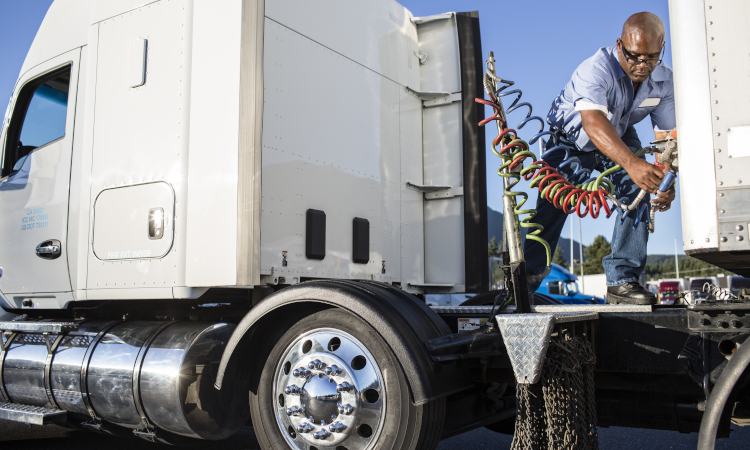This transformation, born from necessity and fueled by innovation, heralds a new era for an industry once defined by diesel engines and human drivers. Today, we unravel the increasing influence of technology on HGVs, its implications, and future trajectories.
Advanced Telematics Systems
The incorporation of advanced telematics into HGVs is a significant stride in modernization. These systems provide real-time tracking, fuel management, and route optimization. This intelligence not only ensures operational efficiency but also reduces carbon footprints. From GPS trackers to integrated fleet management software, telematics is reshaping HGV operations, making logistics smarter, more reliable, and cost-effective.
Autonomous Vehicles and Platoon Systems
The buzz around autonomous HGVs is justifiable. Autonomous technology has potential benefits like enhancing safety, increasing efficiency, and mitigating driver shortages. Additionally, the prospect of platooning – linking several autonomous HGVs electronically to operate as a unit – promises improved fuel efficiency and smoother traffic flow. Although challenges exist, the relentless march of technology continues, inching us closer to this future reality. But, to be able to be a part of a driving fleet of modern and futuristic HGVs you’ll require to pass an HGV driver course with top grades.
Electric and Hybrid HGVs
Responding to environmental imperatives, the HGV industry is witnessing a surge in electric and hybrid vehicles. These vehicles promise reduced emissions, quieter operations, and lower operating costs, marking a departure from traditional fossil fuel reliance. As battery technologies advance and charging infrastructure expands, these green alternatives to conventional HGVs are poised to become more mainstream.
Connectivity and Internet of Things (IoT)
Connectivity and IoT are revolutionizing the HGV industry. The integration of connected devices, sensors, and data analytics promotes more effective fleet management. IoT enhances driver safety, predictive maintenance, and supply chain visibility. The symbiotic relationship between HGVs and IoT, thus, paves the way for more streamlined, intelligent, and responsive operations.
Intelligent Fleet Management Systems
Intelligent fleet management systems, powered by data analytics, predictive maintenance, and driver performance monitoring, are now integral to the HGV industry. These systems reduce costs, optimize operations, and enhance safety and regulatory compliance. Hence, the adoption of such systems represents a transformative approach to logistics, enhancing decision-making and future-proofing businesses.
Emerging Technologies and Future Trends
Emerging technologies such as artificial intelligence, machine learning, and blockchain hold significant promise for the HGV industry. Moreover, anticipated trends like platooning, vehicle-to-vehicle communication, and integration with smart infrastructure present exciting possibilities. As the technology landscape continues to evolve, stakeholders should remain adaptable and receptive to these advancements, ensuring they remain competitive and relevant.












